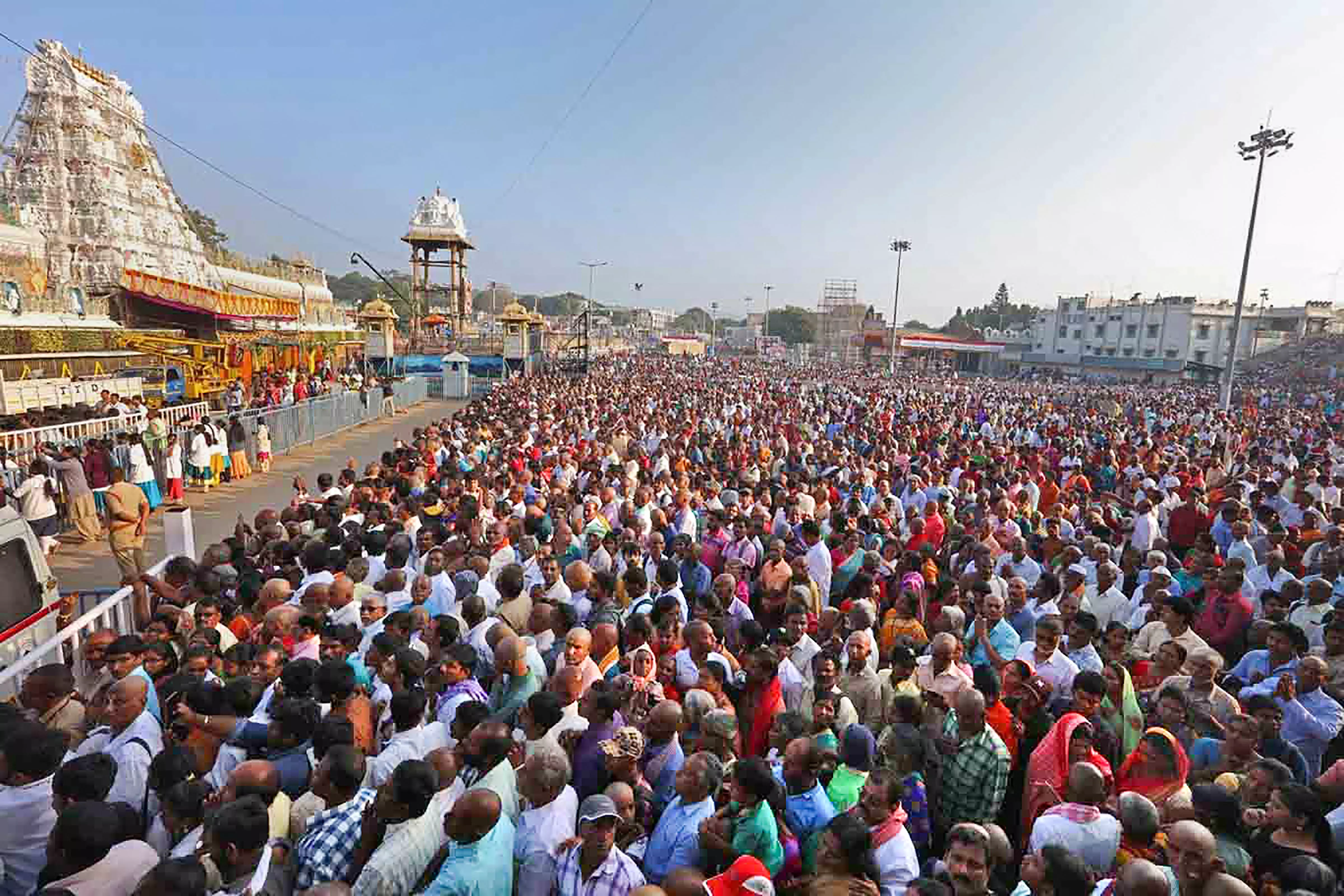Food Adulteration Plagues Tirupati Eateries

The temple city of Tirupati, frequented by over one lakh pilgrims daily, struggles with rampant food adulteration in its hotels and restaurants, leading to serious health concerns for residents and visitors. (PTI File Image)
TIRUPATI: The temple city of Tirupati, which draws over one lakh pilgrims daily and houses half as many residents is plagued with frequent food adulteration complaints in its hotels and restaurants. Despite paying high prices, visitors and residents often find it challenging to get unadulterated meals. Concerns are rising over authorities’ inaction on the deteriorating food quality in local food establishments.
A 2019 inspection by the Andhra Pradesh Meat Development Corporation revealed alarming issues in Tirupati’s food outlets. Nearly every hotel inspected was found storing stale, moldy meat for extended periods, compromising the food safety. Fines ranging up to ₹80,000 were imposed on violators. Yet, over the past five years, such inspections have been minimal and enforcement of food safety standards remains weak.
According to sources, a severe manpower shortage has slowed down the operations of the food safety department. Key senior positions, including those of food safety officers, have remained unfilled for years, forcing the department to manage its responsibilities by redistributing tasks among the limited existing staff. “There is a severe shortage of staff,” admitted a senior food safety official, speaking on condition of anonymity. “With only three food safety officers for the entire district, it is difficult to maintain regular checks across thousands of hotels and food outlets. Adulteration has become rampant as a result,” he explained.
In addition to Tirupati, nearby towns such as Renigunta, Chandragiri, Srikalahasti, Gudur, Venkatagiri, Sullurpeta and Naidupeta also face similar challenges with food safety. Although the public frequently complains, local bodies are unable to conduct inspections without involvement from food safety officials. This dependence has prolonged response times significantly, often leaving serious complaints unaddressed.
By regulation, food safety officers are expected to collect and test at least 12 samples every month. However, in 2023, approximately 1,250 samples were collected across the district, with only a dozen cases confirmed as adulteration involving oils. Out of the 60 cases reviewed, 13 remain pending, and a fine of ₹2.7 lakh was imposed by the authorities last year.
"The department has no vehicle, so the food safety officers rely on their own vehicles to arrive at locations promptly. This limitation has hindered the timely collection of samples and prevented follow-up actions against companies selling substandard and unsafe food products in the market", the official said. “Managing so many cases with limited resources is a major bottleneck. Without additional support, we cannot ensure the quality of food served to the public”, he added.
Despite rising complaints, only about 45 to 50 public grievances on food quality were officially registered this year. Local health officials have called for more staff and stringent action to curb food adulteration. Until then, finding a safe, unadulterated meal remains a challenge for Tirupati’s devotees and residents alike.
( Source : Deccan Chronicle )
Next Story

